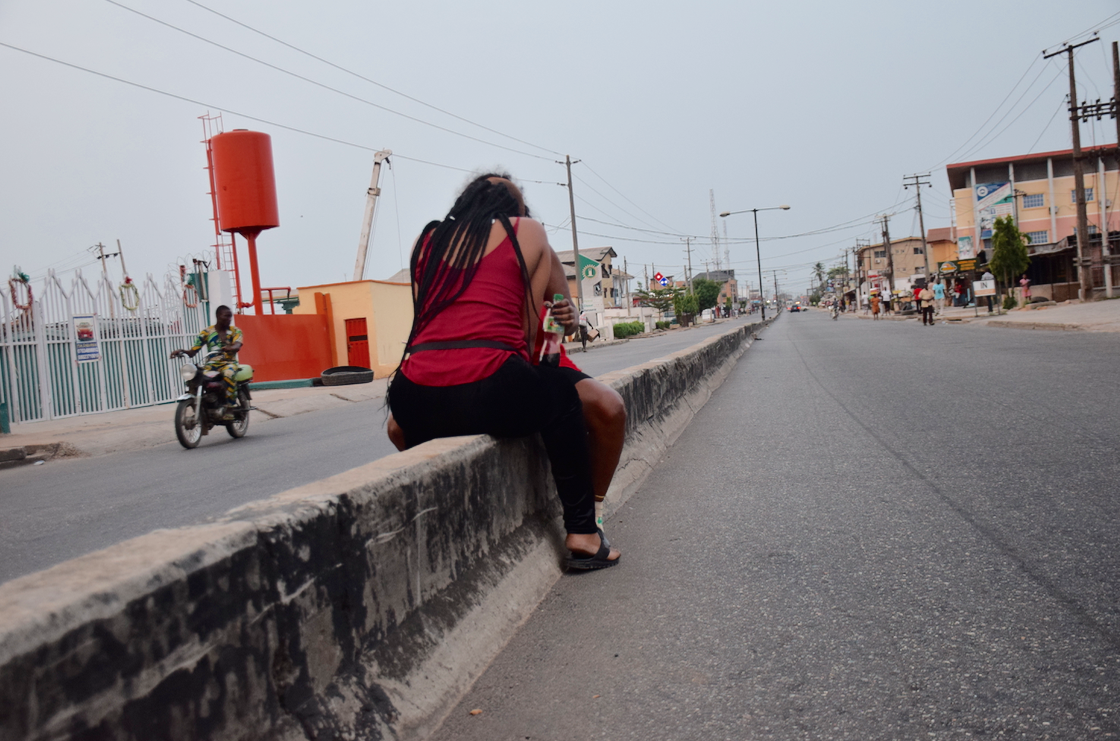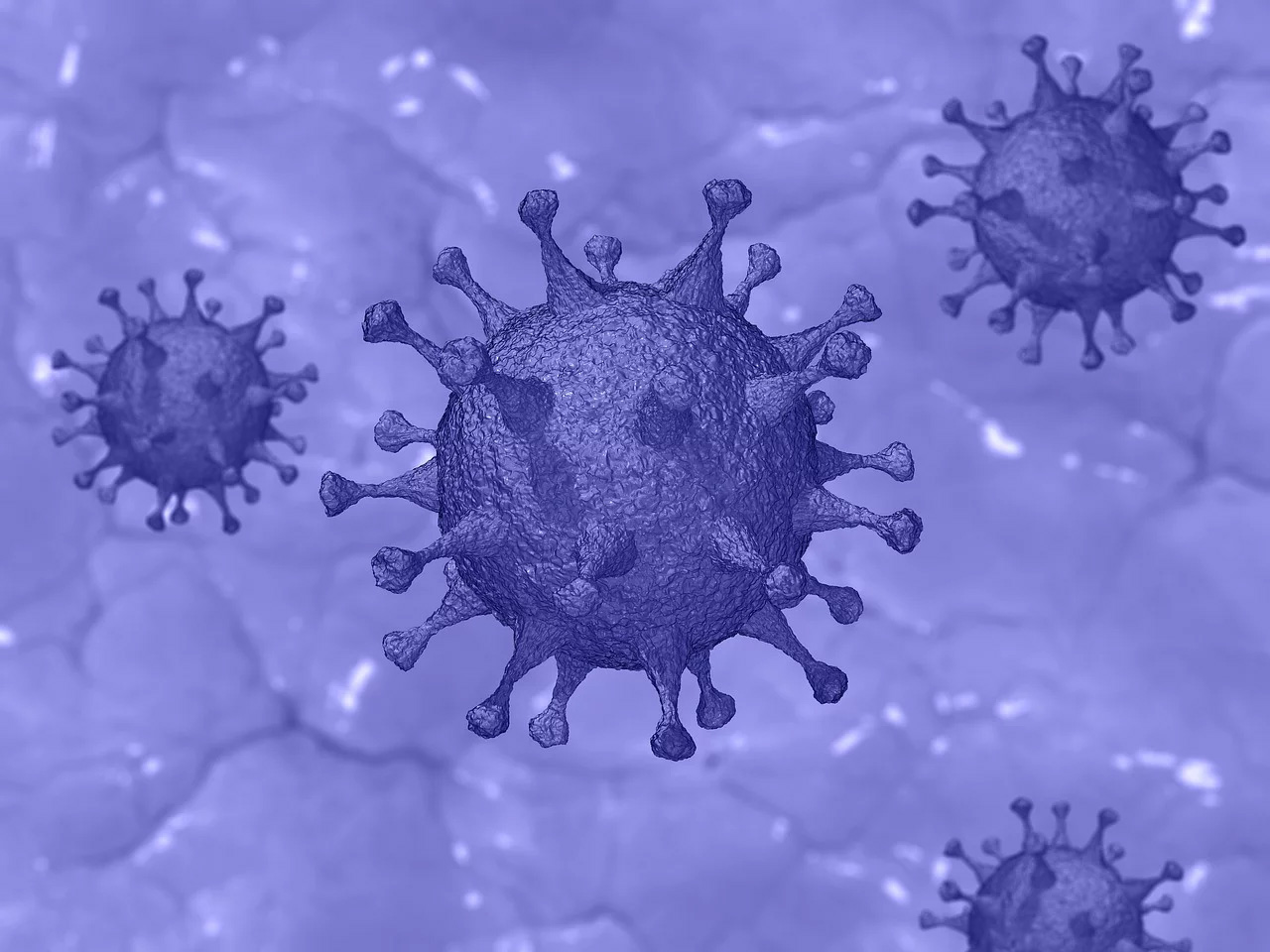The world is upside down right now as a result of the invasive nature of Coronavirus Pandemic (COVID-19). The disruption brought by the global disease outbreak on the socio-cultural and economic lives of people, is as never witnessed for a long time and could only be comparable to the destructive impacts of the slave trade era, colonial period, great depression and the two world-wars. Unfortunately, even as the world is in great pains generally speaking, the truth however, is that the most vulnerable groups and individuals like the elderly, women and children suffers the most.
There is no doubt that the coronavirus pandemic has endangered humanity, brought misfortune and enormous challenges to different segments of our society including: World leaders, Policy-makers, religious organisations, business owners, and civil society groups but special attention should be given to the worsening conditions of persons living with disabilities as well as other vulnerable individuals like women and girls.
Already, in Nigeria the pain of the COVID-19 lockdown imposed by both the federal and state governments is excruciating in both economic and social terms with casualties mounting with specific reference to women and girls who have suffered various degrees of Sexual and Gender-Based Violence (SGBV). The statistics of women and girls being raped and abused on daily basis from different parts of the country are scary but being suppressed by the fact that the world is busy with efforts on how to contain the pandemic. But the sad reality is that if no action is taken to stem this tide more Nigerian women and girls may die from the pangs of hunger and SGBV than from the Coronavirus itself.
Consequently, the COVID-19 lockdown with its corrosive effects on lifestyle and the attendant increase on sexual and gender-based violence has predisposed vulnerable women and girls to live with perpetrators of gender-based violence. Also, due to cultural barriers, socialization and gender-based inequalities which places the female gender in subordinate position to the male, women and girls are more vulnerable to SGBV. This peculiar time occasioned by COVID-19 has even placed women in more vulnerable situation than ever, as some are now forced to stay with their abusers for longer periods in compliance with the lockdown measures. It follows with the recent findings that more women and girls are now more at risk across the country as a result of an upsurge in SGBV and rise in the level of criminality within this period.
Advertisement
To this end, stakeholders and gender-focused CSOs as well as family support units of relevant agencies are tracking all these disturbing incidents in order to present gender perspectives on the COVID-19 pandemic for effective response by the authorities. They include: CLEEN Foundation, FIDA and Gender-Desk officers of the Nigeria Police Force (NPF) working closely with credible Civil Society Organisations (CSOs) like the Mirabel Centre, Project Alert on Violence against Women, Gender Relevance Initiative Promotion (GRIP), Proactive Gender Initiative, Baobab Rights, and Braveheart Initiative among others, for the overall objective of creating safe ways for victims to seek support without endangering their lives.
Reported rise in SGBV and efforts by stakeholders
Recently, there was an unconfirmed video of a young man harassing and intimidating a supposed wife in the streets of Lagos for sexual gratification. Despite the best efforts of the woman to gain some respite by running out to the streets seeking for urgent intervention from either neighbours or passers-by, she was still disappointed and bundled helplessly inside the house to be continuously raped by her ‘husband’. As hilarious as that video in circulation was to some people, it gave a vivid but grim picture of what great number of women and girls are going through in the hands of their abusers across the country. If such assault on a woman could happen in the full glare of the public with no effort to even rescue her from the sexual predator that claimed to be her husband, you can imagine what is happening behind the scene in most homes and squatters in Nigeria.
Advertisement
It will therefore be a crying shame if women and girls, who make up significant population of Nigeria, are subjected to more traumas from the government imposed COVID-19 lockdown through rape and other forms of SGBV without any attempt to stop the scourge.
Fortunately some credible organisations, agencies and concerned stakeholders are tracking incidents and reports of SGBV within this period with one being the case of alleged rape of an infant somewhere in Lagos state by a 34-year old man. Also, GRIP which is a Non-Governmental Organization (NGO) based in Ekiti state have responded to 54 cases of SGBV across Nigeria during this lockdown period, including a case of a woman who was at the verge of taking her life and that of her children due to frustration from domestic violence.
In the same vein, FIDA Nigeria has published online directory of SGBV hotlines in its 32 branches across the country and that of its partners to respond to these cases during the lockdown and beyond. Similar measures were taken by CLEEN Foundation, which recently launched a virtual Public Safety and Security Support Project to address rights-based approach and misconduct by security operatives during the lockdown. Also, the National Human Rights Commission and other governmental and non-governmental organizations have launched various projects in response to human rights violations, including SGBV during this period of lockdown.
Efforts by the Nigeria Police Force
Advertisement
The Nigerian Police also acknowledged that in the past two weeks of compulsory isolation, there has been an increase in alleged cases of rape of infants, young girls and women across the country. To this end, the Force has marshalled out some responses that includes policing and surveillance of communities, places of worship, markets, shops and other areas of coverage.
In addition, patrolling of the neighbourhoods, streets, major-roads and other strategic areas in compliance with the enforcement of government’s directive on the COVID19 lockdown, is an added advantage for swift response to SGBV cases. The Police have also rolled out phone numbers of Assistant Inspectors Generals of Police, Commissioners of Police, Divisional Police Officers and Public Relation Officers across the different state police commands, encouraging citizens to report various human rights violations including Sexual and Gender Based Violence. And citizens and human rights organizations have also responded by being proactive as well as innovative in leveraging on technology to bring various SGBV cases to the attention of the Police and credible CSOs including those working at the grassroots.
Nevertheless, there are more expectations from the gender unit of the Police to ensure greater protection of women and girls in light of the surge in SGBV incidences especially during this lockdown. This can be done through the following strategies: Embarking on aggressive sensitization programs on Radios, TVs and social media platforms to educate citizens on the need to stop SGBV and where to get help in case of its occurrence.
The Police could also designate, replicate and strengthen Gender Desks/Family Support Units in all Police Divisions across Nigeria; ensure that the Gender Desks/Family Support Units have enough logistics and trained personnel to man the desks; create a toll -free hotlines that are accessible to vulnerable persons to report SGBV; provide standby functional operational vehicles to respond to distress calls of SGBV; strengthen collaborations with stakeholders for referrals and linkages on SGBV, especially with organizations providing health care and shelters where necessary.
Advertisement
Key issues affecting effective response to SGBV cases during lockdown
There are some key issues arising within the period of the lockdown that limits the effectiveness of efforts to stem the scourge of SGBV in Nigeria. Some of these limitations are: cultural barriers as issues affecting women are still treated with levity; endemic silence by survivors/victims; stigmatization of survivors/victims; attitude of some police officers, security agents and stakeholders responding to SGBV.
Advertisement
There are also the nagging issues of low response of the justice system; restriction of movement occasioned by the Covid-19 Lockdown, which is hindering investigation and preservation of evidence. Ignorance is a big challenge as some women and girls are with little or no knowledge on how to access justice when they face violations. Some women are illiterate and even when they have phone cannot read and write, and as such cannot leverage on technology to protect their rights. Another barrier is poverty and joblessness–some women are poor and unable to pursue justice to a logical conclusion–and some cannot afford credits on their phones to make calls in the event of SGBV.
Way Forward: Priorities for Stakeholders
Advertisement
Next two weeks of COVID-19 lockdown could raise serious safety and security challenges particularly in urban Nigeria. There are already indications of unrest in Lagos and Ogun States as a result of the rising cases of criminalities and SGBV.
Against this backdrop, governments should ramp up palliatives fast, because a hungry man is an angry man. They should also enforce lockdown with empathy and battle opportunistic criminals firmly including perpetrators of SGBV. This could also be done through aggressive sensitization programs on radio, TV, print and new media so as to educate vulnerable women and girls on the dangers of Sexual and Gender Based Violence.
Advertisement
In the same vein, development partners should identify areas of interest for necessary interventions and urgent financial support in line with the efforts of UN, which has launched a major humanitarian response plan to mitigate COVID-19’s impact on the world’s most vulnerable groups/communities. This should be done with the understanding of the human dimension of the tragedy, which highlighted the dire conditions of people living in places already affected by conflict and crisis. More so, it is important to recognize that women and girls are both uniquely impacted and critical to mitigation strategies during this humanitarian crisis.
More importantly, whatever mitigating measures that are being adopted it would be apt to note that the socio -cultural belief system that have hedged the victims of SGBV is a contributory factor affecting positive responses. The culture of not speaking out due to fear of the unknown, endemic secrecy, inability for victims to have contacts of police within their locations during this period, strong family support system, the non-domestication of the VAPP Act are great contributing factors, but even in states that have domesticated the VAPP Act a lot of victims are unaware of their protective rights under these laws.
Advice for Parents and Guardians
A lockdown situation which has been extended would typically put sexual predators within close proximity of vulnerable girls and infants. Therefore, parents/guardians should make sure they protect their infants and girls from these sexual perverts by monitoring of the movement of wards, and reporting suspicious behaviours. You should not entrust your child/infant into the hands of supposed friends or neighbours. Equally important is sex education, enlightenment on personal rights, zero tolerance for any form of sexual exploitation by relatives.
Specifically, close monitoring of children by parents, and opening all communication channels with their children. Parents should love and befriend their children as this is a time for family bonding where parents should get to know their children and wards better; provision of basic necessities, especially food to prevent children from being preyed upon in their quest to get these necessities. Also crucial is spiritual development that by engaging them in studying religious books and pray together. Through family recreational activities; Parents should teach their children sex-education and how to recognize a potential violator; teach children basic self-defence skills and the ability to speak up always including when violated. Also teach children not to wait till violence have occurred before speaking up, and all attempted violence must be reported immediately. They should learn how to trust and respect their instincts and anybody they are not comfortable with must be avoided.
Parting short for the victims
Some studies have shown that violence against women increase during the lockdown period due to an escalation of tensions in the home. The following are recommended for victims of such violence, given that they are “locked down” and cannot easily escape their attackers. They should ensure their phones are charged and there is credit always for emergency calls; have some family and friends’ numbers on speed dial; maintain peace in the face of provocation; have numbers of human rights organizations and security agents saved in codes and on speed dial.
More importantly, victims should not wait till the violence happen before speaking up, seek alternative shelter if necessary; and avoid unhealthy misunderstanding with spouses, family members and neighbours. Women should look out for each other, be your sister’s keeper. Life is sacrosanct; it is important that women speak up and seek help on time.
Note that wisdom is profitable to direct at this time; women should give abusers a bit of space even in the midst of observing the lockdown. Women should avoid unnecessary demands and be mindful of family finances as they could be trigger factors. Finally, women and girls are encouraged to use technology for escalation of complaints as well as for distress calls to relevant authorities.
Okoro heads the public safety & security department at the CLEEN Foundation and can be reached through [email protected]
Views expressed by contributors are strictly personal and not of TheCable.
Add a comment







